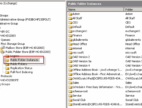5 Crucial Things New Day Traders Need to Know
by Abdul Aziz Mondal Uncategorized Published on: 12 August 2020 Last Updated on: 08 May 2025

One career choice that many people have been pursuing in recent years is trading securities, either on a part- or full-time basis. They’re generally referred to as day traders, and it can be a lucrative way to spend your time. It does take time and money to become a trader, and once you start doing it, you could find yourself doing quite well financially if you have the goods to make this your career.
Two important aspects of a trader’s life are knowing how to do the work, then developing strategies that enable you to maximize your efforts and your profits. Entrepreneur Matt Choi, a longtime trader and founder of Certus Trading, a company that provides the education needed for both day trading and swing trading (which is similar), says that there are several pieces of professional advice he often gives new traders.
“It’s very important to start and work the correct way, which is what I teach,” he says, “You can absolutely do very well by taking advantage of small price moves and making many trades a day, which is how day trading works. But you can also lose money if you’re not well-prepared.”
Here are 5 Crucial Things New Day Traders Need to Know:
What follows are five expert tips for anyone who’s starting to trade or for those already doing it and need a refresher.
1. Understand and stay on top of the markets:
To be a successful day trader, it’s absolutely essential to have a strong understanding of the markets. “This includes understanding how they work, how to time trades and identifying the most profitable opportunities, says Certus Trading’s Matt Choi. One piece of advice to help you do this — beyond what you learn during your trading education — is to follow the top financial news websites and get a good feel for what’s happening on a daily basis. Research is important as a general rule, but it’s extremely important to stay informed about market activity on an ongoing basis.
2. Plan to invest a lot of time:
While someday traders do work part-time, that’s really not a good idea when you’re starting out or even new in the field. You’re going to be making numerous trades each day that the markets are open, so it’s not like many jobs that you can do in an hour or two a day. It’s really most advantageous to give it your full attention.
According to the financial blog 3commas.io, “Anyone looking to figure out how to day trade needs to treat it like any other job. That means setting up consistent hours to focus on trading. Too often, traders will treat day trading like it’s a hobby. Instead, block off hours for chart studying and trading. The best traders carve out time to learn a strategy and know chart trends to perfection.”
3. Make sure you have the money to support the risks you’re taking:
Every trader is required to set up and maintain a trading account with a minimal investment. This is where your trading dollars are coming from. While trading is energizing, it’s definitely not without risk — so you need to determine how much of your capital you’re willing to risk on each trade.
“Assess how much capital you’re willing to risk on each trade,” writes trader and software developer Justin Kuepper. “Many successful day traders risk less than 1% to 2% of their account per trade. If you have a $40,000 trading account and are willing to risk 0.5% of your capital on each trade, your maximum loss per trade is $200 (0.5% * $40,000). Set aside a surplus amount of funds you can trade with and you’re prepared to lose. Remember, it may or may not happen.”
4. Be prepared for the financial obligations that follow:
Even with the education, you’ll need to receive upfront, know that day trading isn’t easy. You’re going to need an extensive amount of practice until you’re really good at it. Also, you’re going to be going toe-to-toe with seasoned traders who have way more experience than you. Often, these people are using the most advanced technology combined with A-list connections in the industry. If you don’t do well, they can reap those rewards.
Another thing to consider is that if you are successful, you’ll have tax obligations, including paying taxes on short-term gains or any investments you hold for a year or less at the marginal rate. While your losses will offset any gains, you’ll still want to be prepared.
5. Don’t Get Emotional:
If you can help it, that is. “Because day trading can be a minute-to-minute activity, it’s easy for a newbie in the field to get stressed if things don’t go your way immediately,” says Choi. “That’s why I advise people to practice staying calm throughout each trading day. That’s what many if not most experienced traders do.”
Of course, anyone new to the industry is going to have a learning curve, make mistakes, and likely lose money early on. That’s part of the learning experience, and also why cash reserves in your trading account are so important. What you’ll want to do, though, is to teach yourself to separate the emotion from the business part. As you develop confidence in your abilities, you can’t help but find the calm in the eye of the storm.
Read Also:



































































































